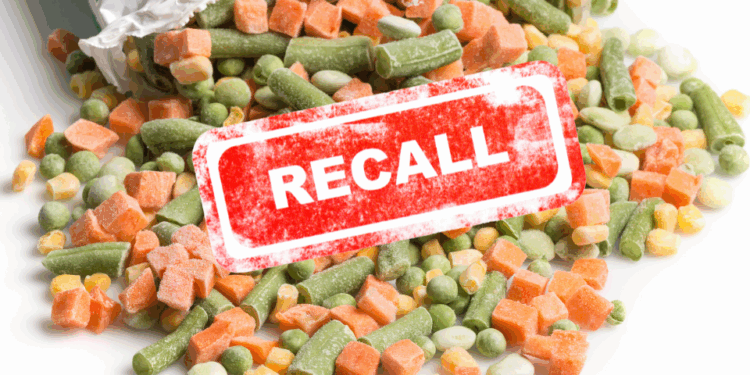Endico Potatoes has recalled frozen vegetable products distributed to six states and Washington D.C. after Pennsylvania state testing detected listeria contamination in finished products.
The Mount Vernon, New York-based company recalled Endico Peas and Carrots and Endico Mixed Vegetables distributed between July 18th and August 4th to Florida, Pennsylvania, New York, New Jersey, Connecticut, Maryland, and the District of Columbia.
The recall affects 2.5-pound plastic bags with specific lot numbers: No. 11065 with a use-by date of 6/10/27 for Peas and Carrots, and lot No. 170625 with a use-by date of 6/16/27 for Mixed Vegetables.
Listeria monocytogenes poses significant health risks, particularly for vulnerable populations. The Centers for Disease Control reports approximately 1,600 annual infections in the United States, resulting in about 260 deaths. Senior citizens, children under five, and pregnant women face the highest risks, with pregnant women potentially experiencing stillbirths and miscarriages.
Symptoms typically include high fever, stomach pain, diarrhoea, stiffness, and muscle aches. However, listeria can be particularly dangerous because symptoms may not appear immediately after exposure, sometimes taking weeks to develop.
The recall demonstrates the importance of state-level food safety testing programmes in identifying contamination before widespread illness occurs. Pennsylvania’s testing initiative detected the problem, preventing potential exposure across multiple states.
Consumers who have purchased the recalled products should return them to the store for a full refund rather than attempting to cook away the contamination. Proper cooking can kill listeria, but cross-contamination during food preparation poses additional risks.
For questions about the recall, consumers can contact Endico Foods at 800-431-1398. The company has not disclosed how the contamination occurred or what steps it is taking to prevent future incidents.
This recall highlights ongoing challenges in the frozen food industry, where products can travel long distances and reach multiple states before contamination is detected. The extended shelf life of frozen vegetables means contaminated products could remain in consumers’ freezers for months.







